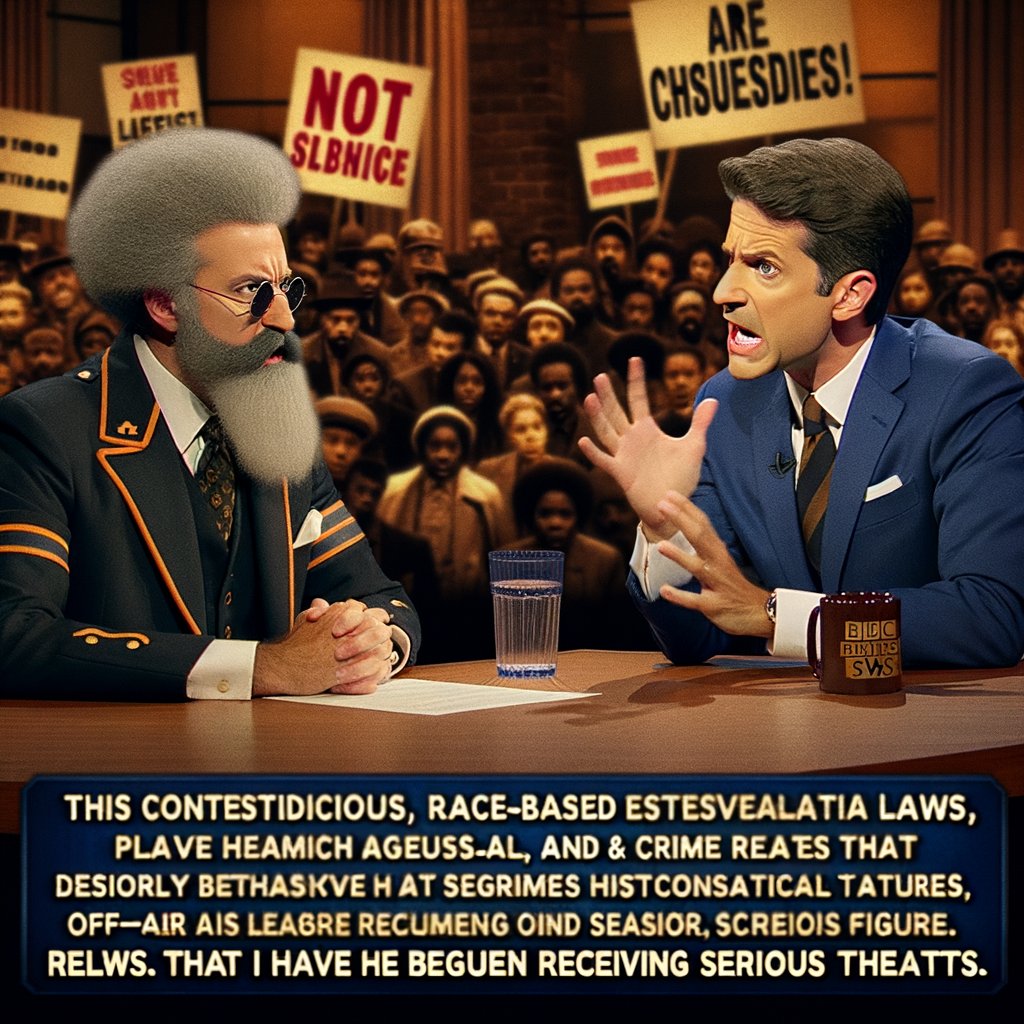Image created by AI
Ernst Roets Faces Death Threats Following Tucker Carlson Interview
Recent events have turned precarious for Ernst Roets, the former Deputy CEO of AfriForum, after his appearance on Tucker Carlson's talk show. Known for his unwavering conservative views, Roets's latest comments stirred substantial controversy, leading to death threats against him.
During the interview, Roets engaged in a provocative dialogue about alleged race-based laws in South Africa and the perceived increase in crimes targeting the Afrikaner community. His statements included severe criticism of anti-apartheid icon Winnie Madikizela-Mandela, branding her as a "cold-blooded murderer" due to her alleged endorsement of "necklacing" during apartheid—a brutal form of mob justice.
The fallout was swift and severe. Roets disclosed on his X account (formerly Twitter) that he received numerous threats, highlighting one particularly alarming threat that he should be "given a beautiful necklace" - a stark reminder of the violent rhetoric he attributed to Winnie Mandela.
His departure from the Solidarity Movement, an umbrella organization that includes AfriForum, last month, did not quell the furor. In the past, Roets has been embroiled in controversies that resonate with this recent backlash. In 2019, he was taken to court by the Nelson Mandela Foundation after displaying the old South African flag on social media, which the Equality Court had ruled as hate speech. Despite being found not guilty of contempt, the incident was widely criticized and marked as an act in bad faith.
This pattern of contentious statements and actions by Roets has more than once brought him into the public and legal eye, highlighting ongoing racial and historical tensions within South Africa. Organizations like the Nelson Mandela Foundation argue that such acts disrupt efforts to heal and progress beyond the country's apartheid past, contradicting the values outlined in the national constitution.
Roets maintains that his actions and statements align with protecting civil liberties and freedom of expression. However, responses to his latest interview suggest that many South Africans perceive his assertions as divisive and insensitively dismissive of the nation’s complex history.
The implications of Roets's comments exemplify the larger, ongoing debates over freedom of speech and historical accountability in South Africa—issues that continue to challenge the nation's journey towards reconciliation and unity.










